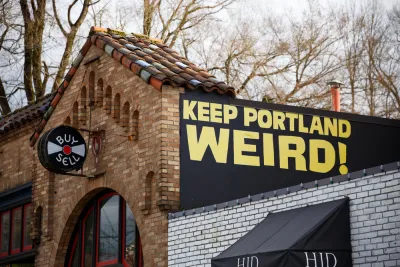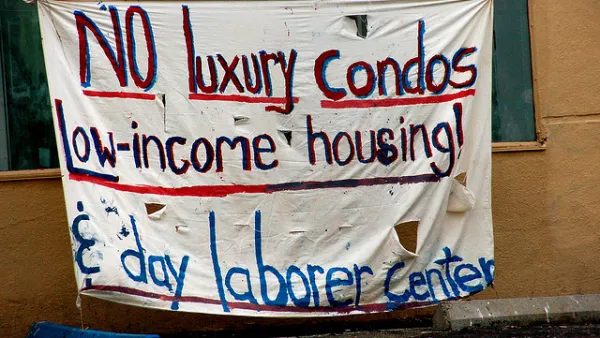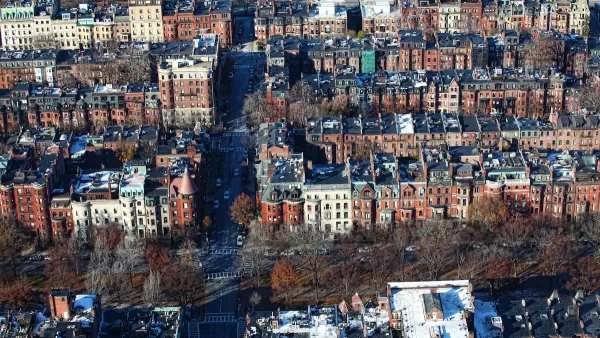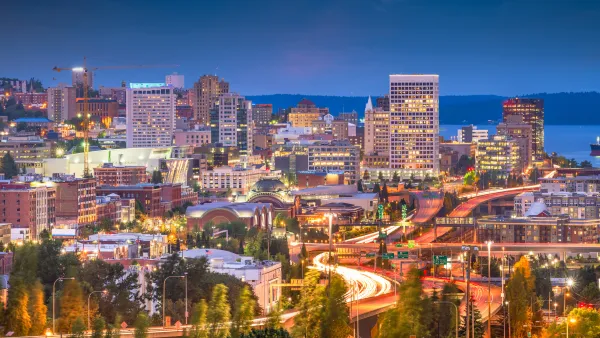Now that tech companies have "discovered" Portland, Oregon, longtime residents question whether the progressive city has done enough to protect them from displacement. Sound familiar?

In the past few years, major tech companies like Google, Airbnb, and Amazon have opened offices in Portland. As housing prices, rents, and evictions skyrocket, the specter of San Francisco looms large.
But a fate of displacement and unattainable housing is not necessarily inevitable, Alana Semeuls points out in The Atlantic—if the city takes action:
[I]t’s not tech or newcomers that are solely to blame. Portland hasn’t been able to slow its rental crisis because in a city that prides itself on progressivism, many of the traditional tools used to create more affordability are off the table.
Semeuls notes a lack of protections for tenants in Portland, as well as throughout the state. In September 2015, conditions drove the Community Alliance of Tenants, a nonprofit, to declare a renter state of emergency.
Thanks in part to pressure from CAT and other groups, the city has begun enacting some tenant protections and affordability measures. A month after CAT's petition, the City Council declared its own housing emergency, and the mayor promised $20 million for affordable housing projects in North and Northeast Portland. Tech companies have also expressed interest in keeping Portland affordable—having moved there, Semeuls writes, in part to avoid the expense of being in San Francisco.
But these efforts have met resistance from some Portland residents who oppose increasing neighborhood density. As the debate continues to play out—and, some say, call the city's progressive identity into question—CAT’s executive director notes: "There are limits to white urban liberalism. When it comes to housing and schools, all of that goes out the window."
FULL STORY: Can Portland Avoid Repeating San Francisco’s Mistakes?

Analysis: Cybertruck Fatality Rate Far Exceeds That of Ford Pinto
The Tesla Cybertruck was recalled seven times last year.

National Parks Layoffs Will Cause Communities to Lose Billions
Thousands of essential park workers were laid off this week, just before the busy spring break season.

Retro-silient?: America’s First “Eco-burb,” The Woodlands Turns 50
A master-planned community north of Houston offers lessons on green infrastructure and resilient design, but falls short of its founder’s lofty affordability and walkability goals.

Test News Post 1
This is a summary

Analysis: Cybertruck Fatality Rate Far Exceeds That of Ford Pinto
The Tesla Cybertruck was recalled seven times last year.

Test News Headline 46
Test for the image on the front page.
Urban Design for Planners 1: Software Tools
This six-course series explores essential urban design concepts using open source software and equips planners with the tools they need to participate fully in the urban design process.
Planning for Universal Design
Learn the tools for implementing Universal Design in planning regulations.
EMC Planning Group, Inc.
Planetizen
Planetizen
Mpact (formerly Rail~Volution)
Great Falls Development Authority, Inc.
HUDs Office of Policy Development and Research
NYU Wagner Graduate School of Public Service




























